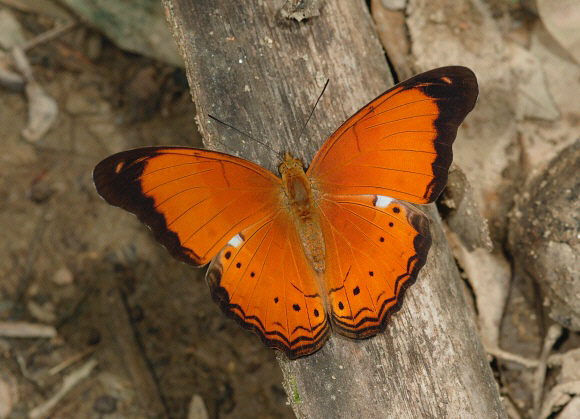
Introduction
The genus Cirrochroa comprises of 18 species, of which 15 occur in the Oriental region, plus 2 on Papua New Guinea, and one on the island of Biak.
In the Malaysian species orissa and satellita the butterflies are blackish brown above, with broad bands of yellowish orange. The other 4 Malaysian species surya, tyche, malaya, and emalea are predominantly bright orange, with the apex and wing borders marked in black. All of these species have a very pale brownish undersurface, marked with a whitish transverse band on both wings.
Cirrochroa emalea is a common species, although usually only encountered in one’s and two’s at most localities. During migrations however the butterfly can be seen in much higher numbers.
The butterfly is found on peninsular Malaya, Thailand, Sumatra, Borneo, Java and Palawan.
Habitats
This species occurs in forest edge habitats at elevations between sea level and about 800 metres.
Lifecycle
The only information I have about the lifecycle is that the larvae have short, branched spines, and that at least one Cirrochroa species feeds on Hydnocarpus ( Achariaceae ).
Adult behaviour
The Malay Yeoman has a rapid but graceful flight, circling and gliding in areas of dappled sunlight, before settling on foliage, usually at a height of about 2 metres.
Males can sometimes also be seen imbibing moisture from forest tracks. At such times they are decidedly fidgety, fanning their wings nervously, and flitting from spot to spot. The male depicted in the photograph above spent over half an hour flitting back and forth between a log and a patch of moist soil nearby, and despite being regularly disturbed by a pair of camera-wielding entomologists it was extremely reluctant to move away from it’s favoured patch of ground.
